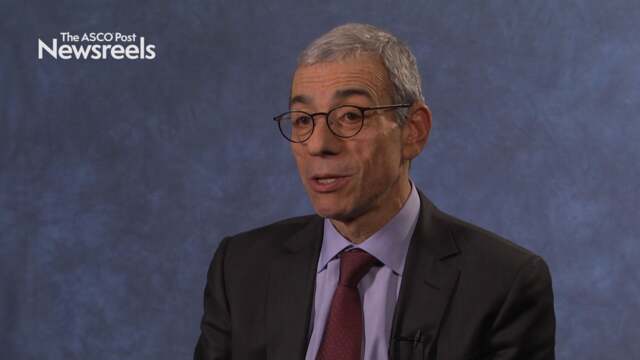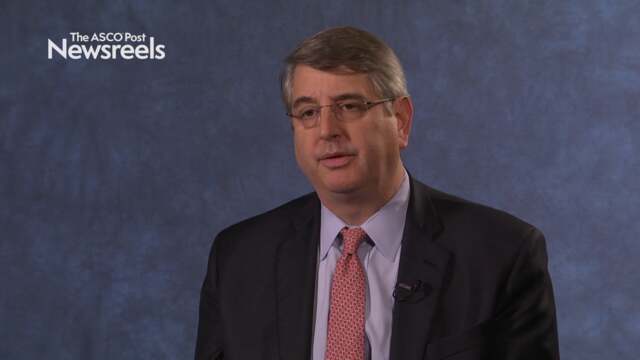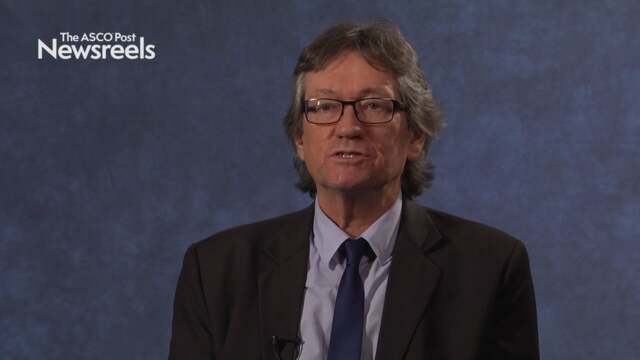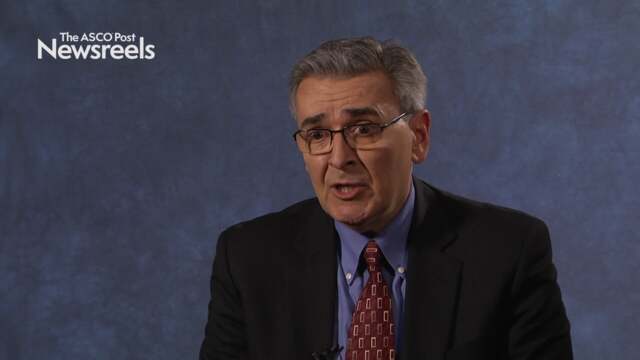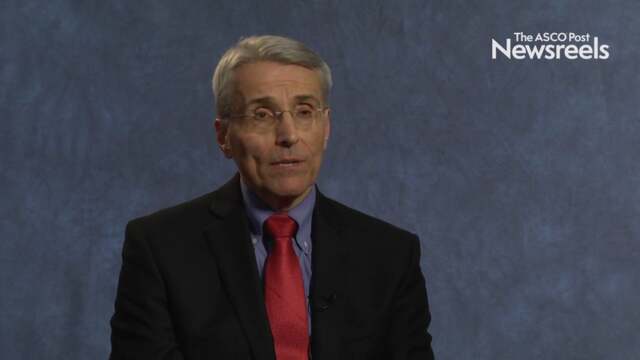Lynn J. Howie, MD, on ER+ Metastatic Breast Cancer: An FDA Treatment Analysis
2017 San Antonio Breast Cancer Symposium
Lynn J. Howie, MD, of the U. S. Food & Drug Administration, discusses a pooled analysis of outcomes of older women with hormone receptor–positive metastatic breast cancer treated with a CDK4/6 inhibitor as initial endocrine-based therapy (Abstract GS5-06).
Eric S. Winer, MD, of the Dana-Farber Cancer Institute, addresses the much-discussed controversy over whether all women diagnosed with metastatic breast cancer should undergo next-generation sequencing.
Harold J. Burstein, MD, PhD, of the Dana-Farber Cancer Institute, discusses study findings on a comparison of adjuvant tamoxifen plus ovarian function suppression vs tamoxifen in premenopausal women with hormone receptor–positive breast cancer (Abstract GS4-03).
Richard G. Gray, MSc, of the University of Oxford, discusses an Early Breast Cancer Trialists’ Collaborative Group meta-analysis of 21,000 women in 16 randomized trials, which showed that increasing the dose density of adjuvant chemotherapy by shortening intervals between courses or sequentially administering treatment significantly reduces disease recurrence and breast cancer mortality (Abstract GS1-01).
Joseph A. Sparano, MD, of Montefiore Medical Center/Albert Einstein College of Medicine, discusses findings that suggest circulating tumor cells 5 years after diagnosis are prognostic for late recurrence in operable stage II–III breast cancer (Abstract GS6-03).
Richard Pazdur, MD, of the U.S. Food & Drug Administration’s Oncology Center of Excellence, discusses the rapid changes in evaluating and approving new and effective agents, incorporating the view of patients in the process, and modernizing clinical trial design with broader eligibility criteria.
